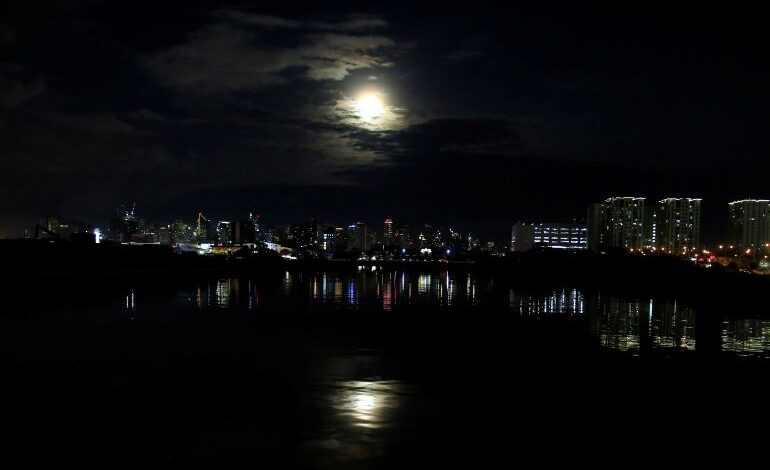Super blue moon 2023: What it is and how to see the celestial event

Stargazers are in for a double treat this week: a blue supermoon with Saturn peeking from behind.
Here is what to know about this rare celestial event:
What is a blue supermoon?
The term “supermoon” was coined in 1979 by astrologer Richard Nolle to refer to the point when the full moon is at the closest point of its orbit around the Earth.
The moon’s orbit is elliptical as it follows an oval course around the Earth, meaning that it is closer and farther away from the Earth at different times.
This time, it will be the year’s closest full moon, just 357,344km (222,043 miles) or so away. That is more than 160km (100 miles) closer than the August 1 supermoon.
Since this is the second full moon in August, it becomes a blue moon, as this is the term to use when we can see the full moon twice in a single month.When and at what time is the supermoon?
According to NASA, the supermoon will “appear opposite the Sun” (in Earth-based longitude) at 9:36pm EDT on Wednesday (01:36 GMT on Thursday).
Then it will set on Thursday just before the sun rises at about 6:46am EDT (10:46 GMT).The moon will be visible everywhere, and weather permitting, observers will not need binoculars or telescopes – “just their own eyes”, according to Gianluca Masi, founder of the Virtual Telescope Project.
However, NASA recommends using binoculars or a telescope to see more of the moon’s texture. There will not be another blue supermoon until 2037.
The Virtual Telescope Project will run a live feed of the super blue moon rising over Rome.The next blue moons will occur in a pair in January and March 2037. The first supermoon of 2023 was in July. The fourth and last will be in September.
What about Saturn?
NASA says Saturn will be visible as a bright point 5 degrees to the moon’s upper right at sunset in the east-southeastern sky.
The ringed planet will appear to circle clockwise around the moon as the night wears on.
Is this a bad time for the super blue moon?
The rare blue supermoon could raise tides above normal just as Hurricane Idalia takes aim at Florida’s west coast, exacerbating flooding from the storm.
While a supermoon can make for a spectacular backdrop in photos of landmarks around the world, its intensified gravitational pull also makes tides higher.
“I would say the timing is pretty bad for this one,” said Brian Haines, the meteorologist in charge at the National Weather Service office in Charleston, South Carolina.
It is expected to make tidal flooding worse not only in Florida but in states such as Georgia and South Carolina, where Haines’s office has been warning residents that parts of Charleston could be underwater by Wednesday night.










